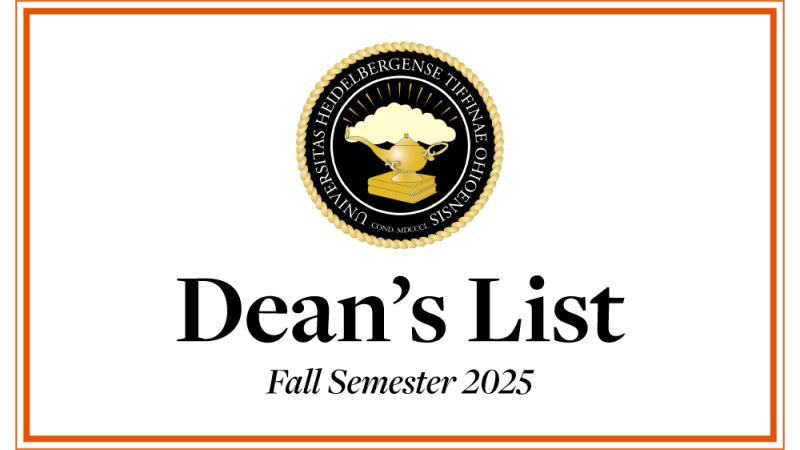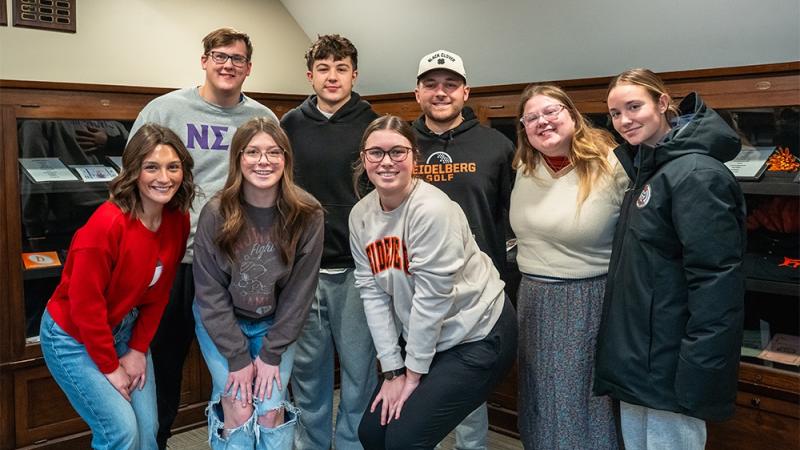HYPE's Michelle Singletary: The recipe for financial freedom
In the world of personal finance, knowledge is power. And you already have the power to become richer than you think.
Those were the key messages from nationally syndicated personal finance columnist Michelle Singletary, the keynote speaker during the spring semester’s first HYPE Day on Tuesday.
With 401Ks, IRAs, stocks, bonds, annuities and other investment options, personal finance is complicated. “But you can’t let that stop you,” said Michelle, who admits to being very frugal like her grandmother who raised her.
Michelle – whose award-winning column, The Color of Money, is published in dozens of newspapers nationwide, including The Washington Post – walked the Heidelberg audience through her series of Five Steps to Financial Freedom. Her recipe for intelligent investing and becoming rich was an enlightening mix of practical advice and philosophical wisdom for being content with your position in life.
The 5 Steps
Don’t try to impress
It’s important to know your personal financial situation and commit to the discipline it takes to live within your means, and not above it,” said Michelle, who quoted the following: “Rich people stay rich by acting like they’re broke. Poor people stay poor by acting like they’re rich.”
Don’t extend yourself on credit
“Take a pause when using plastic,” Michelle advised. Because credit and debit cards feel less limiting, people are inclined to spend more when using them because they allow greater access to personal funds. “Plastic doesn’t limit you, so practice using cash more. … Slow it down so you have time to think about what you’re spending.”
Don’t hate budgeting
Statistics indicate that 40% of Americans don’t have enough money to cover a $400 emergency expense, so they turn to credit, borrowing or even worse, payday loans. According to Michelle, budgeting equals awareness. While some think budgeting limits you by revealing what you can’t do, the opposite is actually true. Budgeting actually helps you stay organized and spend within limits. “It actually tells you what you can do,” she says. “This is the time to start these practices.”
Don’t be afraid to invest
Persuading 20-somethings to start saving for retirement now is difficult. Michelle knows this from the experience of convincing her own three children of its importance. But the numbers bear out the value. And they have time on their side, a luxury older Americans don’t have. “You can be a millionaire by the time you retire if you start investing now,” she said. “The earlier you start, the lower your yearly savings have to be” to reach your financial goals.
Don’t live like everyone else
The fastest way to lose money is to try to be like someone else, which often means living beyond your means to “keep up with the Joneses,” according to Michelle. “You don’t want things that impress other people. What you want is money in the bank,” she said.
The decisions you make now – at the beginning of your earning life, when you have time to think about money – will set you up for success the rest of your life. They’ll also keep you away from the 25% of Americans with an annual salary of $150,000 or more who live paycheck to paycheck, she said.
The all-important question: need vs. want
Keeping her presentation interactive, Michelle landed on an important question to help individuals think about and take control of their personal spending. It’s a lesson that has application to many aspects of life.
“Is it a need or a want? Ask yourself that every time you go to spend money,” she advised. Taking care of needs first allows for some wiggle room with discretional spending on wants.
‘How rich are you?’
Next, it was time for a little philosophy. By a show of hands, Michelle asked the ‘Berg students, “Are you rich?” There were none. Then, she asked for hands of those who have clean water to drink and something to eat today, who have enough clothing that they could decide what to wear today, who have a job, transportation, a college education, even a “boo.” The response was different: many hands were raised.
“We’re all trained to think of being rich in a way that’s all about money,” she said. “We have so much yet we aspire for more. And that’s not sustainable for most of us.”
It’s all about the definition of rich beyond money and developing “an appreciation for what you have.”
Her final advice: “The way to get to where you need to be is to be content,”
“If you ask me if I’m rich, I don’t even hesitate,” she said. “I am rich. Yes, absolutely, 100%”




